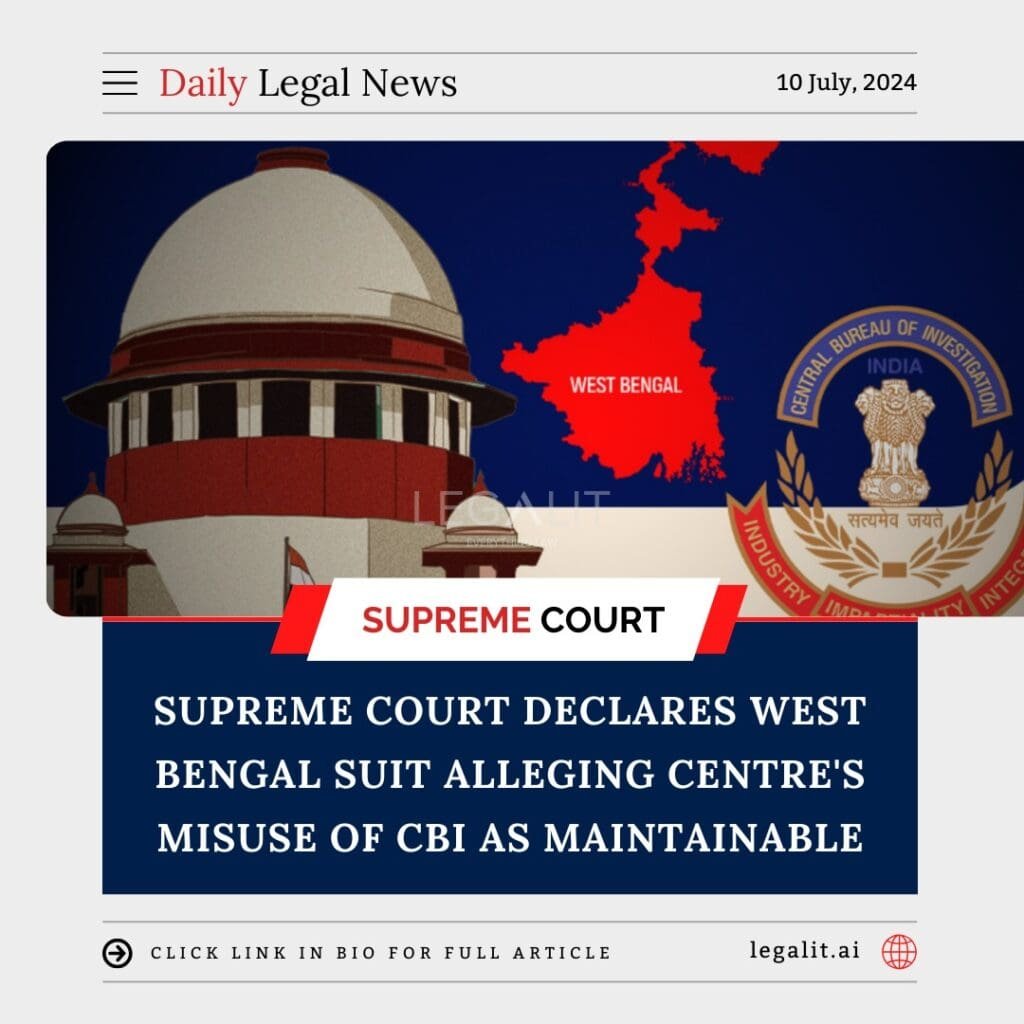
In a significant ruling, the Supreme Court of India has declared that a suit filed by the West Bengal government, alleging misuse of the Central Bureau of Investigation (CBI) by the central government, is maintainable. This decision marks an important step in the ongoing legal battle concerning federal powers and the autonomy of state governments in India.
Background of the Case
The West Bengal government filed a suit against the central government, alleging that the CBI was being misused for political purposes and that its actions were infringing upon the state’s jurisdiction. The suit contended that the central government was deploying the CBI in a manner that undermined the principles of federalism enshrined in the Indian Constitution.
Supreme Court’s Ruling
The Supreme Court, in its ruling, stated that the suit is maintainable, allowing the case to proceed. The Court’s decision emphasized several key points:
- Federal Structure: The Court reaffirmed the importance of maintaining the federal structure of the Indian Constitution. It acknowledged that states have the right to challenge the actions of the central government if they believe that their autonomy is being compromised.
- Role of CBI: The ruling also brought into focus the role and functioning of the CBI. It highlighted the need for the agency to operate within the bounds of the law and not be used as a tool for political vendettas.
- Judicial Scrutiny: The decision underscores the role of the judiciary in scrutinizing the actions of both central and state governments to ensure that the balance of power is maintained and that federal principles are upheld.
Implications of the Ruling
The Supreme Court’s decision has several significant implications:
- Legal Precedent: This ruling sets a legal precedent, affirming that state governments can seek judicial intervention if they believe that the central government is overstepping its authority.
- Autonomy of States: It reinforces the autonomy of state governments, ensuring that they have a legal recourse to protect their jurisdiction from undue interference.
- Accountability of CBI: The decision emphasizes the need for accountability and transparency in the operations of the CBI, ensuring that it acts impartially and within the legal framework.
Reactions
The Supreme Court’s ruling has elicited various reactions:
- Support from State Governments: Several state governments have welcomed the decision, viewing it as a necessary measure to protect their autonomy and prevent misuse of central agencies.
- Concerns from Central Government: The central government may have concerns about the potential implications of this ruling on its ability to deploy central agencies across states.
Conclusion
The Supreme Court’s declaration that the West Bengal suit alleging the Centre’s misuse of the CBI is maintainable marks a critical juncture in the discourse on federalism and state autonomy in India. This ruling not only allows the West Bengal government to pursue its case but also sets a precedent for other states to seek judicial intervention when they believe their powers are being encroached upon. It underscores the judiciary’s role in maintaining the balance of power between the central and state governments, ensuring that the principles of federalism are upheld.